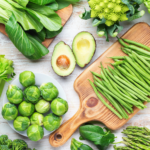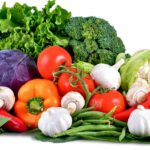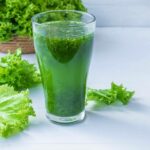This blog post will explore 19 incredible foods to help you lose weight. These superfoods are delicious and packed with essential nutrients that can boost your metabolism, curb cravings, and help you shed those extra pounds. We’ve compiled a comprehensive list to assist you in achieving your weight loss goals.
A Balanced Diet is Important for Weight Loss

Calorie Control:
A balanced diet helps in controlling calorie intake, which is crucial for weight loss. By consuming the right amount of calories that align with your energy expenditure, you create a calorie deficit, leading to weight loss over time.
Nutritional Adequacy:
A balanced diet ensures that you receive all the essential nutrients your body needs while losing weight. It includes a variety of foods from different food groups, providing a wide range of vitamins, minerals, and antioxidants necessary for optimal health and well-being.
Satiety and Hunger Control:
A balanced diet consists of foods that are high in fiber, protein, and healthy fats, which promote satiety and help control hunger. Feeling satisfied after meals reduces the likelihood of overeating or snacking on unhealthy foods, supporting weight loss efforts.
Blood Sugar Regulation:
Balanced meals that include complex carbohydrates, lean proteins, and healthy fats help regulate blood sugar levels. This prevents spikes and crashes in blood sugar, reducing cravings and promoting stable energy levels, making it easier to maintain a healthy eating pattern.
Macronutrient Balance:
A balanced diet ensures the appropriate distribution of macronutrients, including carbohydrates, proteins, and fats. Each macronutrient plays a specific role in weight loss. Carbohydrates provide energy, proteins support muscle maintenance and repair, and healthy fats contribute to satiety and nutrient absorption.
Micronutrient Density:
Choosing nutrient-dense foods is essential for weight loss. A balanced diet incorporates a variety of fruits, vegetables, whole grains, and lean proteins, providing essential vitamins, minerals, and antioxidants that support overall health and metabolism.
Metabolism Boost:
Certain foods in a balanced diet, such as lean proteins, whole grains, and spicy foods, can help boost metabolism. This can enhance calorie burning and aid in weight loss by increasing the body’s energy expenditure.
Sustainable Lifestyle:
Following a balanced diet promotes long-term sustainability and helps establish healthy eating habits. Unlike restrictive diets, a balanced approach allows for a wider variety of foods, making it more enjoyable and easier to maintain weight loss in the long run.
How Certain Foods Can Aid in Weight Loss

High-Fiber Foods:
Foods rich in fiber, such as fruits, vegetables, whole grains, legumes, and nuts, can aid in weight loss. Fiber adds bulk to meals, promoting feelings of fullness and reducing overall calorie intake. It also slows down digestion, leading to a gradual release of energy and preventing blood sugar spikes.
Protein-Rich Foods:
Including adequate protein in your diet is beneficial for weight loss. Lean muscle mass must be preserved in order to maintain a healthy metabolism, which protein helps do. It also has a higher thermic effect, meaning it requires more energy to digest, thus increasing calorie expenditure. Protein-rich foods include lean meats, poultry, fish, eggs, dairy products, legumes, and tofu.
Low-Energy-Density Foods:
Foods that have a low energy density, meaning they contain fewer calories per gram, can be helpful for weight loss. These foods often have high water and fiber content, promoting satiety while consuming fewer calories. Examples include fruits, vegetables, broth-based soups, and non-starchy vegetables.
Healthy Fats:
Contrary to popular belief, including healthy fats in your diet can aid in weight loss. Fats contribute to feelings of fullness and satisfaction, preventing overeating. Opt for sources of healthy fats like avocados, nuts, seeds, olive oil, and fatty fish, which provide essential nutrients and omega-3 fatty acids.
Thermogenic Foods:
Some foods have a thermogenic effect, meaning they increase the body’s calorie expenditure during digestion and metabolism. Examples of thermogenic foods include chili peppers, ginger, green tea, coffee, and spices like cinnamon and turmeric. While the effect may be modest, incorporating these foods can contribute to overall weight loss efforts.
Hydrating Foods:
Choosing foods with high water content, such as watermelon, cucumbers, tomatoes, and leafy greens, can aid in weight loss. These foods help you feel full while providing hydration, and they often have fewer calories compared to more calorie-dense options.
Mindful Snacking Options:
Opting for healthier snacks can prevent excessive calorie intake and support weight loss. Choose snacks that combine protein, fiber, and healthy fats, like Greek yogurt, mixed nuts, sliced vegetables with hummus, or a piece of fruit with nut butter. These snacks provide satiety and sustained energy.
Whole, Unprocessed Foods:
Prioritizing whole, unprocessed foods over highly processed and refined options is key for weight loss. Whole foods are generally more nutrient-dense, lower in calories, and provide higher satiety. Concentrate on including fresh produce, complete grains, lean meats, and healthy fats in your meals.
Here are the Top 19 super-effective foods to help you lose weight
Leafy Greens

Leafy greens are highly nutritious vegetables that can be beneficial for weight loss due to several reasons:
| Leafy Green | Nutritional Benefits |
|---|---|
| Spinach | High in iron, vitamins A, C, and K, and folate. Supports bone health and boosts immunity. |
| Kale | Rich in vitamins A, C, and K, calcium, and antioxidants. Promotes eye health and aids digestion. |
| Arugula | Packed with vitamins A, K, and C, calcium, and folate. Supports heart health and helps reduce inflammation. |
| Swiss Chard | High in vitamins A, K, and C, iron, and magnesium. Promotes bone health and supports healthy blood circulation. |
| Romaine Lettuce | Rich in vitamins A, K, and C, and folate. Provides hydration and supports healthy digestion. |
| Collard Greens | High in vitamins A, C, and K, calcium, and fiber. Supports bone health and aids in detoxification. |
| Watercress | Packed with vitamins A, C, and K, and antioxidants. Boosts immunity and supports brain health. |
| Cabbage | Rich in vitamins C and K, and antioxidants. Supports digestive health and may aid in weight loss. |
Versatile Culinary Uses:
Leafy greens offer versatility in the kitchen. They can be consumed raw in salads, added to sandwiches and wraps, or incorporated into cooked dishes such as stir-fries, soups, stews, and smoothies. Experimenting with different cooking methods and flavor combinations can make leafy greens more enjoyable and diverse in your diet.
Incorporating leafy greens into your meals is a simple and effective way to boost your nutrient intake, support weight loss, and promote overall health. Consider adding a variety of leafy greens to your grocery list and enjoy their flavorful and nutritious benefits.
Whole Grains

Whole grains can indeed play a beneficial role in weight loss efforts. Here’s how they can help:
| Whole Grain | Nutritional Benefits |
|---|---|
| Quinoa | High in protein, fiber, iron, magnesium, and antioxidants. Supports muscle growth, aids digestion, and provides energy. |
| Brown Rice | Rich in fiber, manganese, selenium, and B vitamins. Promotes heart health, aids digestion, and helps maintain stable blood sugar levels. |
| Oats | High in soluble fiber, beta-glucan, and antioxidants. Supports heart health, aids in lowering cholesterol levels, and promotes healthy digestion. |
| Whole Wheat | Contains fiber, B vitamins, and minerals like iron and magnesium. Supports digestive health, helps regulate blood sugar levels, and provides sustained energy. |
| Barley | Rich in fiber, antioxidants, and minerals like selenium and phosphorus. Supports heart health, aids in digestion, and helps regulate blood sugar levels. |
| Buckwheat | High in protein, fiber, and minerals like manganese and magnesium. Supports heart health, aids in digestion, and helps maintain stable blood sugar levels. |
| Millet | Contains fiber, B vitamins, and minerals like iron and magnesium. Promotes heart health, aids digestion, and provides sustained energy. |
| Amaranth | High in protein, fiber, and minerals like calcium and iron. Supports bone health, aids digestion, and provides sustained energy. |
Satiety and Reduced Energy Density:
Whole grains have a higher satiety index compared to refined grains. They take longer to digest, providing a longer-lasting feeling of fullness. Additionally, whole grains tend to have a lower energy density, meaning they provide fewer calories per gram. This allows you to consume a satisfying volume of food while managing calorie intake.
Versatility in Cooking:
Whole grains can be incorporated into a wide range of dishes, including salads, soups, stews, stir-fries, pilafs, and baked goods. They add texture, flavor, and nutritional value to meals, enhancing their overall health benefits.
Incorporating whole grains into your diet can contribute to overall health, weight management, and disease prevention. Aim to replace refined grains with whole grain options whenever possible and enjoy the delicious and nutritious benefits they provide.
Lean Proteins

Lean proteins are sources of protein that are low in fat and provide essential amino acids, making them an important part of a balanced and healthy diet. Here’s a description of lean proteins:
| Lean Protein Source | Nutritional Benefits |
|---|---|
| Chicken Breast | High in protein, low in fat, and a good source of vitamins B6 and B12. Supports muscle growth, aids in weight management, and provides essential amino acids. |
| Turkey Breast | Lean and rich in protein, low in fat, and a good source of vitamins B3 and B6. Supports muscle growth, aids in weight management, and provides important nutrients. |
| Fish (such as salmon, tuna, and trout) | Excellent source of high-quality protein, omega-3 fatty acids, and vitamins D and B12. Supports heart health, aids in weight management, and provides essential nutrients. |
| Lean Beef (such as sirloin or tenderloin) | Good source of protein, iron, and vitamin B12. Supports muscle growth, aids in weight management, and provides important nutrients. |
| Eggs | High-quality protein, vitamins A, D, and B12, and a good source of healthy fats. Supports muscle growth, aids in weight management, and provides essential nutrients. |
| Greek Yogurt | High in protein, calcium, and probiotics. Supports muscle growth, aids in weight management, and promotes gut health. |
| Tofu | Plant-based protein source, low in fat, and a good source of iron and calcium. Supports muscle growth, aids in weight management, and provides important nutrients. |
| Lentils | Plant-based protein source, high in fiber, and a good source of iron and folate. Supports muscle growth, aids in weight management, and provides essential nutrients. |
Weight Management:
Including lean proteins in your diet can be beneficial for weight management. Protein has a higher thermic effect of food, meaning it requires more energy to digest, resulting in increased calorie expenditure. Additionally, protein helps promote feelings of fullness and satiety, reducing appetite and the likelihood of overeating.
Muscle Maintenance and Repair:
Lean proteins are particularly important for individuals engaging in physical activity, as they support muscle maintenance and repair. During exercise, muscle tissue undergoes stress and damage, and consuming adequate protein helps facilitate recovery and muscle growth.
Cooking Methods:
When preparing lean proteins, opt for cooking methods that minimize the use of added fats. Grilling, baking, broiling, steaming, and poaching are healthier options that help retain the natural flavors and nutrients of the proteins without adding excessive calories.
Incorporating lean proteins into your meals is crucial for meeting your protein needs, maintaining muscle mass, supporting weight management, and promoting overall health. Consult with a healthcare professional or registered dietitian for personalized advice on incorporating lean proteins into your specific dietary needs and preferences.
Legumes and Pulses

Legumes and pulses are a category of plant-based foods that are rich in protein, fiber, and various other essential nutrients.They are a great supplement to a healthy, well-balanced diet. Here’s a description of legumes and pulses:
| Legume/Pulse | Nutritional Benefits |
|---|---|
| Chickpeas | High in protein, fiber, and minerals like iron and folate. Supports digestive health, aids in weight management, and provides sustained energy. |
| Lentils | Rich in protein, fiber, and minerals like iron and folate. Supports heart health, aids in digestion, and provides sustained energy. |
| Black Beans | High in protein, fiber, and antioxidants. Supports heart health, aids in digestion, and helps regulate blood sugar levels. |
| Kidney Beans | Rich in protein, fiber, and minerals like iron and folate. Supports digestive health, aids in weight management, and provides sustained energy. |
| Green Peas | Good source of protein, fiber, and vitamins C and K. Supports digestion, aids in weight management, and provides essential nutrients. |
| Black-eyed Peas | High in protein, fiber, and potassium. Supports heart health, aids in digestion, and helps regulate blood pressure levels. |
| Lima Beans | Rich in protein, fiber, and minerals like manganese and folate. Supports digestive health, aids in weight management, and provides sustained energy. |
| Red Lentils | High in protein, fiber, and folate. Supports heart health, aids in digestion, and provides sustained energy. |
Preparation and Cooking:
Many legumes and pulses require soaking and cooking before consumption to improve their texture and reduce cooking time. It’s important to follow proper cooking instructions to ensure they are safe to eat and to optimize their nutritional benefits.
Incorporating legumes and pulses in your diet is a great way to boost your protein and fiber intake while enjoying a wide range of flavors and textures. They offer numerous health benefits and are a sustainable and environmentally friendly food choice. Experiment with different recipes and cooking methods to incorporate legumes and pulses into your meals regularly.
Fatty Fish

Fatty fish are a type of fish that are known for their higher fat content compared to other varieties. They are considered highly nutritious and offer several health benefits due to their specific fat composition. Here’s a description of fatty fish:
| Fatty Fish | Nutritional Benefits |
|---|---|
| Salmon | Excellent source of omega-3 fatty acids, high-quality protein, and vitamins D and B12. Supports heart health, aids in brain function, and provides essential nutrients. |
| Mackerel | Rich in omega-3 fatty acids, protein, and vitamins D and B12. Supports heart health, aids in brain function, and provides important nutrients. |
| Sardines | High in omega-3 fatty acids, protein, and minerals like calcium and selenium. Supports heart health, aids in brain function, and provides essential nutrients. |
| Trout | Good source of omega-3 fatty acids, protein, and vitamins D and B12. Supports heart health, aids in brain function, and provides important nutrients. |
| Tuna | Contains omega-3 fatty acids, high-quality protein, and vitamins D and B12. Supports heart health, aids in brain function, and provides essential nutrients. |
| Herring | Rich in omega-3 fatty acids, protein, and vitamins D and B12. Supports heart health, aids in brain function, and provides important nutrients. |
| Anchovies | High in omega-3 fatty acids, protein, and minerals like calcium and iron. Supports heart health, aids in brain function, and provides essential nutrients. |
Healthy Fats:
While the term “fatty” might seem counterintuitive for weight loss, the fats in fatty fish are actually beneficial for your health and weight management. Fatty fish contain omega-3 fatty acids, which have been shown to reduce inflammation, support metabolic health, and promote weight loss. These healthy fats help regulate appetite, improve insulin sensitivity, and enhance the body’s ability to burn fat.
Cooking and Preparations:
Fatty fish can be prepared in various ways, including grilling, baking, poaching, or pan-searing. It’s important to be mindful of the cooking method and avoid excessive use of added fats or high-calorie sauces to maintain their health benefits.
Incorporating fatty fish into your diet can provide a rich source of omega-3 fatty acids, essential nutrients, and health benefits. Aim to include fatty fish in your meals at least twice a week as part of a balanced and varied diet.
Berries

Berries, such as strawberries, blueberries, raspberries, and blackberries, can indeed be helpful for weight loss. Here’s why:
| Berry | Nutritional Benefits |
|---|---|
| Strawberries | High in vitamin C, fiber, and antioxidants. Supports immune health, aids in digestion, and promotes healthy skin. |
| Blueberries | Packed with antioxidants, fiber, and vitamins C and K. Supports brain health, aids in digestion, and promotes heart health. |
| Raspberries | Rich in fiber, antioxidants, and vitamins C and K. Supports digestive health, aids in weight management, and provides important nutrients. |
| Blackberries | High in fiber, antioxidants, and vitamins C and K. Promotes good skin, digestive aid, and heart health. |
| Cranberries | Packed with antioxidants, fiber, and vitamins C and E. Supports urinary tract health, aids in digestion, and promotes immune health. |
| Goji Berries | Rich in antioxidants, fiber, and vitamins A and C. Supports eye health, aids in digestion, and provides important nutrients. |
| Acai Berries | High in antioxidants, fiber, and healthy fats. Supports heart health, aids in digestion, and promotes healthy skin. |
Versatility in Culinary Uses:
Berries can be enjoyed in various ways. They can be eaten fresh, added to salads, smoothies, or yogurt, used as toppings for cereals and desserts, or incorporated into baked goods like pies, muffins, and tarts. Their vibrant colors and sweet-tart flavors make them a versatile and delicious addition to many recipes.
Incorporating berries into your diet can provide a wide range of health benefits and add a burst of flavor and color to your meals. Consider incorporating a variety of berries into your daily routine to enjoy their nutritional advantages and satisfy your sweet tooth in a healthy way.
Cruciferous Vegetables

Cruciferous vegetables, including broccoli, cauliflower, cabbage, Brussels sprouts, and kale, can be beneficial for weight loss due to several reasons:
| Cruciferous Vegetable | Nutritional Benefits |
|---|---|
| Broccoli | High in fiber, vitamins C and K, and antioxidants. Supports immune health, aids in digestion, and promotes bone health. |
| Cauliflower | Packed with fiber, vitamins C and K, and antioxidants. Supports heart health, aids in digestion, and promotes healthy brain function. |
| Cabbage | Rich in fiber, vitamins C and K, and antioxidants. Supports digestive health, aids in weight management, and provides important nutrients. |
| Brussels Sprouts | High in fiber, vitamins C and K, and antioxidants. Supports immune health, aids in digestion, and promotes healthy skin. |
| Kale | Nutrient-dense with fiber, vitamins A, C, and K, and antioxidants. Supports bone health, aids in digestion, and promotes heart health. |
| Bok Choy | Contains fiber, vitamins A, C, and K, and antioxidants. Supports bone health, aids in digestion, and provides essential nutrients. |
| Radishes | Packed with fiber, vitamins C and K, and antioxidants. Supports digestion, aids in weight management, and promotes healthy skin. |
Culinary Versatility:
Cruciferous vegetables offer a wide range of culinary possibilities. They can be enjoyed raw in salads, stir-fried, steamed, roasted, or added to soups and stews. Experimenting with different cooking methods can help retain their nutritional value while enhancing their flavors and textures.
Incorporating a variety of cruciferous vegetables into your diet can provide an array of essential nutrients, fiber, and potential health benefits. Including these vegetables as part of a balanced and varied diet can contribute to overall health, well-being, and disease prevention.
Citrus Fruits

Citrus fruits, including oranges, grapefruits, lemons, limes, and tangerines, can contribute to weight loss in several ways:
| Citrus Fruit | Nutritional Benefits |
|---|---|
| Oranges | High in vitamin C, fiber, and antioxidants. Supports immune health, aids in digestion, and promotes healthy skin. |
| Grapefruits | Packed with vitamin C, fiber, and antioxidants. improves digestion, supports heart health, and helps control blood sugar levels. |
| Lemons | Rich in vitamin C, antioxidants, and citric acid. Supports immune health, aids in digestion, and promotes healthy skin. |
| Limes | High in vitamin C, antioxidants, and citric acid. Supports immune health, aids in digestion, and helps regulate blood sugar levels. |
| Mandarins | Packed with vitamin C, fiber, and antioxidants. Supports immune health, aids in digestion, and promotes healthy skin. |
| Tangerines | Rich in vitamin C, fiber, and antioxidants. Supports heart health, aids in digestion, and helps regulate blood sugar levels. |
Weight Management:
Citrus fruits are low in calories and high in fiber, making them a great choice for weight management. Their high water content and fiber content contribute to a feeling of fullness, which can help control appetite and reduce calorie intake.
Culinary Versatility:
Citrus fruits can be enjoyed in various ways. They can be eaten fresh, juiced, or used as a flavoring in both sweet and savory dishes. Citrus zest and juice add brightness and tang to recipes, while the segments can be a refreshing snack on their own or added to salads, desserts, marinades, and beverages.
Incorporating a variety of citrus fruits in your diet can provide a burst of flavor, a dose of vitamin C, and numerous health benefits. Whether eaten on their own or incorporated into recipes, citrus fruits are a refreshing and nutritious addition to a well-balanced diet.
Nuts and Seeds

Nuts and seeds can indeed be beneficial for weight loss when consumed in moderation as part of a balanced diet. Here’s why:
| Nuts and Seeds | Nutritional Benefits |
|---|---|
| Almonds | Rich in healthy fats, fiber, vitamin E, and minerals like magnesium and calcium. Supports heart health, aids in digestion, and provides essential nutrients. |
| Walnuts | Packed with omega-3 fatty acids, antioxidants, and minerals like copper and manganese. Supports brain health, aids in digestion, and promotes heart health. |
| Cashews | Contains healthy fats, fiber, and minerals like copper and zinc. Supports heart health, aids in digestion, and provides important nutrients. |
| Pistachios | High in fiber, protein, and minerals like potassium and vitamin B6. Supports heart health, aids in digestion, and promotes healthy blood pressure levels. |
| Flaxseeds | Rich in omega-3 fatty acids, fiber, and antioxidants. Supports heart health, aids in digestion, and provides essential nutrients. |
| Chia Seeds | Packed with fiber, omega-3 fatty acids, and minerals like calcium and magnesium. Supports digestive health, aids in weight management, and provides important nutrients. |
| Sunflower Seeds | Contains healthy fats, protein, and minerals like vitamin E and selenium. Supports heart health, aids in digestion, and provides essential nutrients. |
| Pumpkin Seeds | Rich in fiber, protein, and minerals like iron and magnesium. Supports heart health, aids in digestion, and promotes healthy blood pressure levels. |
High in Healthy Fats:
Nuts and seeds are rich in healthy fats, including monounsaturated and polyunsaturated fats, such as omega-3 fatty acids. These fats help promote satiety, keeping you feeling full and satisfied for longer periods. Incorporating moderate amounts of nuts and seeds into your diet can help reduce cravings and prevent overeating.
Essential Nutrients:
Nuts and seeds are rich in various essential nutrients. They are particularly high in vitamin E, magnesium, potassium, and some B vitamins. Different types of nuts and seeds offer a unique nutrient profile, so consuming a variety can ensure a broad range of essential nutrients.
Culinary Versatility:
There are many ways to enjoy nuts and seeds. They can be eaten as a snack on their own, sprinkled over salads or yogurt, added to baked goods like bread and muffins, or used as a coating for proteins like fish or chicken. They can also be ground into nut or seed butter, which are popular spreads.
Incorporating a variety of nuts and seeds in your diet can provide essential nutrients, healthy fats, and a satisfying crunch. However, it’s important to consume them in moderation as part of a balanced diet to reap their nutritional advantages while considering individual dietary needs and potential allergies.
Greek Yogurt

Greek yogurt is a popular food that can be beneficial for weight loss due to several reasons:
| Greek Yogurt | Nutritional Benefits |
|---|---|
| Protein | Greek yogurt is a rich source of high-quality protein, which is essential for muscle growth, repair, and maintenance. Protein also helps keep you feeling fuller for longer, supporting weight management goals. |
| Probiotics | Greek yogurt contains live and active cultures, including beneficial bacteria known as probiotics. Probiotics contribute to a healthy gut microbiome, support digestion, and may improve immune function. |
| Calcium | Greek yogurt is a good source of calcium, which is crucial for strong bones and teeth. Adequate calcium intake also plays a role in muscle function, nerve transmission, and blood clotting. |
| Vitamins and Minerals | Greek yogurt provides various vitamins and minerals, including vitamin B12, phosphorus, and potassium. These nutrients support energy metabolism, cell function, and overall health. |
| Low in Lactose | Greek yogurt is lower in lactose compared to regular yogurt, making it easier to digest for some individuals who are lactose intolerant. |
Creamy and Thick Texture:
Greek yogurt has a creamy and thick consistency compared to regular yogurt. This is because the straining process removes much of the liquid whey, resulting in a higher concentration of protein and fewer carbohydrates.
Probiotic Benefits:
Like regular yogurt, Greek yogurt contains live and active cultures, also known as probiotics. These beneficial bacteria support gut health by promoting a healthy balance of microorganisms in the digestive system. Consuming Greek yogurt can contribute to improved digestion, nutrient absorption, and a strengthened immune system.
Versatility in Culinary Uses:
There are many ways to enjoy Greek yoghurt. It can be consumed on its own, used as a base for smoothies or parfaits, added to sauces and dressings for a creamy texture, or used as a substitute for higher-fat ingredients in recipes. It is a versatile ingredient in both savoury and sweet meals with to its acidic flavour and rich texture.
Incorporating Greek yogurt into your diet can provide a convenient and nutritious way to increase protein intake, support gut health, and enjoy a creamy and satisfying snack or ingredient. Whether enjoyed on its own or used in recipes, Greek yogurt offers a range of benefits for overall health and well-being.
Eggs

Eggs are highly nutritious and can be beneficial for weight loss due to several reasons:
| Eggs | Nutritional Benefits |
|---|---|
| Protein | Eggs are an excellent source of high-quality protein, containing all essential amino acids. Protein is essential for muscle growth, repair, and maintenance, and it also helps keep you feeling fuller for longer. |
| Vitamins | Eggs are rich in several vitamins, including vitamin B12, vitamin D, and vitamin A. Vitamin B12 is important for nerve function and red blood cell production, while vitamin D supports bone health and immune function. Vitamin A is essential for vision and healthy skin. |
| Minerals | Eggs provide minerals such as iron, zinc, and selenium. Iron is necessary for oxygen transport and energy production, zinc supports immune function and cell growth, and selenium acts as an antioxidant. |
| Choline | Eggs are a great source of choline, a nutrient important for brain health, memory, and liver function. Choline is also essential during pregnancy for fetal brain development. |
| Healthy Fats | Eggs contain healthy fats, including monounsaturated and polyunsaturated fats. These fats are beneficial for heart health and help with the absorption of fat-soluble vitamins. |
| Antioxidants | Eggs contain antioxidants like lutein and zeaxanthin, which are beneficial for eye health and may reduce the risk of age-related macular degeneration. |
Weight Management:
Eggs are a filling and satisfying food due to their protein content. Consuming eggs as part of a meal can help increase feelings of fullness, reduce appetite, and potentially lead to lower calorie intake throughout the day. This makes eggs a beneficial addition to a weight management or weight loss diet.
Versatility in Culinary Uses:
Eggs are incredibly versatile and can be prepared in various ways to suit different tastes and preferences. They can be boiled, poached, scrambled, or used as an ingredient in recipes such as omelets, frittatas, and baked goods. Their versatility allows for creative and healthy meal options while supporting weight loss goals.
Incorporating Eggs are a nutrient-dense food that can be enjoyed as part of a balanced diet. However, individual dietary needs and health conditions should be considered. Including eggs in your diet can contribute to overall health, provide essential nutrients, and offer culinary versatility.
Chia Seeds

Chia seeds are tiny black seeds derived from the plant Salvia hispanica and are known for their nutritional value and potential benefits for weight loss. Here’s why chia seeds can be helpful:
| Chia Seeds | Nutritional Benefits |
|---|---|
| Fiber | Chia seeds are an excellent source of dietary fiber. Just one ounce (28 grams) of chia seeds provides around 10 grams of fiber, which is beneficial for digestion, promoting satiety, and supporting bowel regularity. |
| Omega-3 Fatty Acids | Chia seeds areone of the finest sources of alpha-linolenic acid (ALA), an omega-3 fatty acid, found in plants. These essential fatty acids are beneficial for heart health, brain function, and reducing inflammation. |
| Protein | Chia seeds contain a good amount of plant-based protein, making them a suitable addition to a vegetarian or vegan diet. Protein is essential for muscle growth, repair, and various cellular functions. |
| Antioxidants | Chia seeds are rich in antioxidants, including flavonoids and phenolic compounds. Antioxidants help protect the body against free radicals, which are unstable molecules that can cause damage to cells. |
| Minerals | Chia seeds provide important minerals such as calcium, phosphorus, magnesium, and manganese. These minerals are essential for bone health, energy production, and various enzymatic reactions in the body. |
| Hydration and Gel Formation | When mixed with liquid, chia seeds form a gel-like substance due to their high soluble fiber content. This can help with hydration and contribute to a feeling of fullness. |
Healthy Fats:
Alpha-linolenic acid (ALA), a kind of omega-3 fatty acid, is abundant in chia seeds. Omega-3 fatty acids have been associated with numerous health benefits, including reduced inflammation, improved heart health, and potentially supporting weight loss efforts.
Culinary Versatility:
Chia seeds are incredibly versatile in the kitchen. They can be consumed in their raw form or added to a variety of foods and beverages. Chia seeds can be sprinkled over yogurt, oatmeal, or smoothie bowls, used as an egg substitute in baking recipes, or mixed into puddings, jams, and sauces. They add a subtle nutty flavor and a pleasant crunch to dishes.
Incorporating chia seeds offer numerous health benefits, they should be consumed in moderation as part of a balanced diet. As they absorb liquid, it’s advisable to drink plenty of water when consuming chia seeds to prevent dehydration. Adding chia seeds to your diet can contribute to overall health, provide essential nutrients, and enhance the nutritional value of your meals and snacks.
Avocado

Avocado is a unique fruit known for its creamy texture, rich flavor, and numerous health benefits. When it comes to weight loss, avocados can be a beneficial addition to your diet. Here’s why:
| Avocado | Nutritional Benefits |
|---|---|
| Healthy Fats | Avocados are rich in healthy monounsaturated fats, particularly oleic acid. These fats are beneficial for heart health, as they can help lower bad cholesterol levels and reduce the risk of heart disease. |
| Fiber | Avocados are a good source of dietary fiber. Fiber is important for digestive health, promoting satiety, and regulating blood sugar levels. |
| Vitamins and Minerals | Avocados provide various vitamins and minerals, including potassium, vitamin K, vitamin E, vitamin C, and B vitamins such as folate. These nutrients support overall health, immune function, and energy production. |
| Antioxidants | Avocados contain antioxidants such as lutein, zeaxanthin, and vitamin E. These antioxidants help protect cells from damage caused by free radicals and support eye health. |
| Phytochemicals | Avocados contain various phytochemicals, including phytosterols and polyphenols. These compounds have anti-inflammatory properties and may play a role in reducing the risk of chronic diseases. |
| Hydration | Avocados have a high water content, which contributes to hydration and helps maintain proper bodily functions. |
Creamy Texture:
Avocado has a smooth and creamy texture that is often compared to butter or custard. This texture makes it a versatile ingredient in both savory and sweet dishes.
Versatility in Culinary Uses:
Avocado is incredibly versatile in the kitchen. It can be sliced, mashed, or blended into various dishes. Avocado is commonly used in guacamole, salads, sandwiches, wraps, smoothies, and as a topping for toast or eggs. It can also be used as a substitute for butter or mayonnaise in recipes, adding a creamy and nutritious element.
While avocados are healthy, it’s vital to remember that they are also high in calories. Portion control is key, especially for individuals who are watching their calorie intake. Adding avocados to a balanced diet can provide a range of essential nutrients, healthy fats, and a delightful creamy addition to meals and recipes.
Green Tea

Green tea is a popular beverage that has gained recognition for its potential benefits for weight loss. Here’s how green tea can contribute to your weight loss efforts:
| Green Tea | Potential Health Benefits |
|---|---|
| Antioxidants | Green tea is rich in antioxidants, particularly catechins, which help protect the body against free radicals and oxidative stress. This can have various benefits, including reducing the risk of chronic diseases. |
| Weight Management | Some studies suggest that the catechins in green tea may help boost metabolism and aid in weight management. Green tea is also calorie-free, making it a healthy beverage choice. |
| Heart Health | Green tea has been associated with a reduced risk of heart disease. It may help lower LDL cholesterol levels, reduce blood pressure, and improve overall cardiovascular health. |
| Brain Function | The caffeine and L-theanine present in green tea can have a positive impact on brain function. It may help improve focus, attention, and cognitive performance. |
| Digestive Health | Green tea has been linked to improved digestion and gut health. It may promote healthy gut bacteria, aid in digestion, and alleviate some digestive issues. |
| Cancer Prevention | Some studies suggest that the antioxidants in green tea may help protect against certain types of cancer, although more research is needed to fully understand its potential effects. |
Appetite Suppression:
Some studies suggest that green tea may help suppress appetite and reduce feelings of hunger. The catechins in green tea can help regulate the hormones responsible for appetite control, potentially leading to reduced calorie intake and supporting weight management.
It’s important to note that while green tea can offer potential benefits for weight loss, it is not a magical solution on its own. It should be incorporated as part of a balanced diet and a healthy lifestyle that includes regular physical activity and adequate sleep.
Spices and Herbs

Spices and herbs not only add flavor and aroma to dishes but can also be beneficial for weight loss. Here’s how spices and herbs can support your weight loss efforts:
| Spices and Herbs | Potential Health Benefits |
|---|---|
| Turmeric | Contains the active compound curcumin, which has anti-inflammatory and antioxidant properties. Turmeric may help reduce inflammation, support joint health, and aid digestion. |
| Cinnamon | Has antioxidant and anti-inflammatory properties. Cinnamon may help regulate blood sugar levels, improve insulin sensitivity, and lower cholesterol levels. |
| Ginger | Known for its anti-inflammatory and digestive properties. Ginger may help alleviate nausea, reduce muscle pain, and support healthy digestion. |
| Garlic | Contains sulfur compounds with potential immune-boosting and heart-protective benefits. Garlic may help lower blood pressure, support cardiovascular health, and enhance immune function. |
| Rosemary | Rich in antioxidants and anti-inflammatory compounds. Rosemary may have cognitive benefits, support digestion, and help reduce inflammation. |
| Oregano | Contains potent antioxidants and antimicrobial properties. Oregano may have anti-inflammatory effects, support immune health, and contribute to digestive wellness. |
| Basil | Contains antioxidants and essential oils with potential anti-inflammatory properties. Basil may help reduce inflammation, support heart health, and have antimicrobial effects. |
| Parsley | Rich in vitamins, minerals, and antioxidants. Parsley may support kidney health, aid digestion, and provide anti-inflammatory benefits. |
| Cayenne Pepper | Contains capsaicin, which may help boost metabolism, reduce appetite, and alleviate pain. |
| Cumin | Rich in antioxidants and may aid digestion, support immune health, and have antimicrobial properties. |
Flavor Enhancement:
Spices and herbs add depth, complexity, and distinct flavors to dishes. They can transform ordinary meals into extraordinary culinary experiences. Each spice and herb has its unique taste profile, ranging from mild and earthy to bold and fiery.
Anti-Inflammatory Properties:
Many spices and herbs have anti-inflammatory properties, such as turmeric, garlic, and ginger. Chronic inflammation in the body is associated with weight gain and an increased risk of metabolic disorders. Including anti-inflammatory spices and herbs in your diet can help promote overall health and support weight management.
Versatility in Cooking:
Spices and herbs can be used in a wide range of dishes, including soups, stews, sauces, marinades, curries, and baked goods. They can be used to enhance the flavor of meats, vegetables, grains, and legumes. Experimenting with different combinations and proportions of spices and herbs can lead to exciting and unique flavor profiles.
Incorporating a variety of spices and herbs into your cooking, you can not only elevate the taste of your dishes but also enjoy the potential health benefits they offer. Whether it’s the warmth of cinnamon, the heat of chili peppers, or the fragrance of basil, spices, and herbs can bring a delightful sensory experience to your culinary creations.
Dark Chocolate

Dark chocolate, often referred to as a healthier alternative to milk chocolate, can be a part of a balanced diet and may even offer some benefits for weight loss. Here’s how dark chocolate can contribute to your weight loss journey:
| Dark Chocolate | Potential Health Benefits |
|---|---|
| Antioxidants | Dark chocolate is rich in antioxidants, particularly flavonoids and polyphenols. These compounds help protect the body against free radicals and oxidative stress, which can reduce the risk of chronic diseases. |
| Heart Health | Studies suggest that consuming dark chocolate in moderation may help improve heart health. It may lower blood pressure, improve blood flow, and reduce the risk of heart disease. |
| Mood Booster | Dark chocolate contains various compounds that can enhance mood and promote a sense of well-being. It stimulates the production of endorphins and serotonin, which are known as “feel-good” chemicals. |
| Brain Function | The flavonoids in dark chocolate may have positive effects on cognitive function. It may enhance brain function, improve focus, and support memory and learning. |
| Blood Sugar Control | Dark chocolate with a high cocoa content and minimal added sugars has a low glycemic index. It may help regulate blood sugar levels and improve insulin sensitivity. |
| Minerals | Dark chocolate is a good source of minerals like iron, magnesium, and copper. These minerals play essential roles in various bodily functions, including energy production and red blood cell formation. |
| Skin Health | The antioxidants in dark chocolate may contribute to healthy skin. They can help protect against sun damage, improve skin hydration, and promote a more youthful appearance. |
Satiety and Weight Management:
Despite its rich flavor, dark chocolate can contribute to a sense of satisfaction and satiety. The combination of its intense taste and the presence of healthy fats and fiber can help curb cravings and prevent overindulgence, making it a potentially helpful treatment for those watching their weight.
Culinary Versatility:
Dark chocolate is incredibly versatile in the kitchen. It can be enjoyed on its own as a delicious treat, used in baking to add depth and complexity to desserts or incorporated into various recipes, such as hot chocolate, truffles, or chocolate-dipped fruits. It pairs well with a wide range of flavors, including nuts, fruits, and spices.
While dark chocolate offers potential health benefits, it’s essential to balance its consumption with an overall healthy and balanced diet. Incorporating high-quality dark chocolate into your lifestyle can provide a pleasurable and potentially beneficial addition to your culinary experiences.
Soup

Soup can be a valuable addition to a balanced diet, especially when it comes to weight loss. Here’s how incorporating soup into your meals can support your weight loss goals:
| Soup | Key Ingredients | Potential Health Benefits |
|---|---|---|
| Chicken Noodle Soup | Chicken, vegetables, noodles | Provides hydration, nourishment, and comfort. Can help alleviate cold symptoms, support immune health, and provide essential nutrients. |
| Tomato Soup | Tomatoes, broth, herbs | Rich in antioxidants, vitamins, and minerals. May support heart health, promote skin health, and provide anti-inflammatory benefits. |
| Minestrone Soup | Beans, vegetables, pasta | High in fiber, vitamins, and minerals. Can support digestive health, promote satiety, and contribute to weight management. |
| Lentil Soup | Lentils, vegetables, spices | High in plant-based protein and fiber. May aid in weight management, support heart health, and stabilize blood sugar levels. |
| Vegetable Soup | Assorted vegetables, broth | Provides a variety of vitamins, minerals, and antioxidants. Supports overall health, immune function, and digestion. |
| Miso Soup | Miso paste, tofu, seaweed | Contains probiotics and antioxidants. Supports gut health, provides immune-boosting benefits, and contributes to detoxification. |
| Butternut Squash Soup | Butternut squash, broth, spices | Rich in vitamins A and C, fiber, and antioxidants. Supports eye health, promotes a healthy immune system, and aids in digestion. |
| Clam Chowder | Clams, potatoes, cream | Good source of protein, vitamins, and minerals. May support thyroid function, provide energy, and promote healthy skin. |
| Gazpacho | Tomatoes, cucumbers, peppers | Refreshing and hydrating cold soup. Rich in antioxidants, vitamins, and minerals. Supports hydration, aids digestion, and provides immune-boosting benefits. |
Satiety and Weight Management:
Soup can be a filling and satisfying meal, especially when it contains fiber-rich ingredients such as vegetables and legumes. The combination of liquid and solid components in a soup can promote a sense of fullness, potentially aiding in weight management efforts.
Culinary Creativity:
Soup offers ample opportunities for culinary creativity. It can be prepared in various styles, such as clear broths, creamy purees, chunky stews, or spicy soups. The choice of ingredients, seasonings, and cooking techniques allows for endless flavor combinations and adaptations.
incorporating soup into your weight loss plan, keep in mind the ingredients and cooking methods. Opt for broth-based or vegetable-based soups instead of cream-based options, as they tend to be lower in calories and saturated fats. Also, be mindful of sodium content and choose low-sodium broth or season with herbs and spices instead of excessive salt.
Watermelon

Watermelon is a delicious and hydrating fruit that can be a refreshing addition to a balanced diet, including weight loss programs. Here are some reasons why watermelon can support your weight loss goals:
| Watermelon | Nutritional Benefits |
|---|---|
| Hydration | Watermelon is made up of over 90% water, making it an excellent hydrating fruit. Staying hydrated is essential for overall health, maintaining body temperature, and supporting bodily functions. |
| Vitamins | Watermelon is a good source of vitamins A and C. Vitamin A is important for vision, immune function, and cell growth, while vitamin C is an antioxidant that supports immune health and collagen production. |
| Lycopene | Watermelon is rich in lycopene, a powerful antioxidant that gives it its red color. Lycopene has been associated with potential health benefits, including reducing the risk of certain types of cancer and promoting heart health. |
| Amino Acids | Watermelon contains citrulline, an amino acid that plays a role in nitric oxide production, which helps relax and dilate blood vessels. This may contribute to improved circulation and heart health. |
| Minerals | Watermelon provides minerals such as potassium and magnesium. Potassium is important for maintaining proper electrolyte balance, supporting muscle and nerve function, and regulating blood pressure. |
| Low in Calories | Watermelon is a low-calorie fruit, making it a refreshing and guilt-free option for those watching their calorie intake. |
Sweet and Juicy Flavor:
Watermelon is known for its refreshing, sweet, and thirst-quenching flavor. The ripe flesh offers a pleasant balance between sweetness and a hint of natural watermelon tanginess. Nutrient Profile:
Watermelon is a good source of essential vitamins and minerals, including vitamin C and vitamin A. It also contains antioxidants, such as lycopene, which have been associated with various health benefits. Consuming nutrient-dense foods like watermelon supports overall well-being and can be part of a balanced diet for weight loss.
Culinary Versatility:
Watermelon can be enjoyed in various ways. It is commonly eaten as a fresh fruit, either sliced into wedges or cubed. Watermelon is also a popular ingredient in fruit salads, smoothies, juices, and even savory dishes like salads and salsas, where its natural sweetness adds a pleasant contrast.
Incorporating watermelon in moderation as part of an overall balanced diet. While it is a healthy fruit, it still contains natural sugars, so portion control is key. Be mindful of your overall calorie and carbohydrate intake to align with your weight loss goals.
Frequently ask questions:
Certainly! Here are some frequently asked questions (FAQs) about incorporating these foods into a balanced diet:
Q1: How much of these foods should I consume in a day?
A: The recommended serving sizes may vary depending on factors like age, sex, activity level, and overall calorie needs. It’s generally advised to follow portion guidelines and consult with a healthcare professional or registered dietitian for personalized recommendations.
Q2: Can I still eat other foods while incorporating these foods into my diet?
A: Absolutely! These foods are meant to be part of a balanced diet, which includes a variety of food groups. Incorporating these foods alongside other nutrient-dense options like fruits, vegetables, whole grains, and lean proteins can help create a well-rounded meal plan.
Q3: How can I make these foods more enjoyable to eat?
A: Experiment with different cooking methods, seasonings, and recipes to make these foods more appealing. For example, try marinating lean proteins in flavorful herbs and spices, adding a variety of vegetables to soups or stir-fries, or creating fruit and yogurt parfaits with berries and nuts.
Q4: What if I have food allergies or dietary restrictions?
A: Adaptations can be made to accommodate dietary restrictions or allergies. For example, if you have a gluten intolerance, opt for gluten-free whole grains like quinoa or rice instead of wheat-based grains. If you have a dairy allergy, choose non-dairy alternatives like almond milk or coconut yogurt instead of Greek yogurt.
Q5: Can I consume these foods if I am vegetarian or vegan?
A: Yes, many of these foods are suitable for vegetarian and vegan diets. Plant-based protein sources like legumes, tofu, and tempeh can replace lean proteins, and non-dairy alternatives can be used in place of Greek yogurt. Ensure you’re getting a variety of nutrients and consult a registered dietitian if needed.
Q6: Are there any potential side effects of consuming these foods?
A: For the majority of people, these foods are safe and beneficial when consumed as part of a balanced diet. However, individual sensitivities or allergies can exist, so it’s important to listen to your body and seek medical advice if you experience adverse reactions.
Remember, maintaining a balanced diet involves a variety of foods, portion control, and considering individual nutritional needs. It’s always best to consult with a healthcare professional or registered dietitian for personalized guidance and to address specific concerns or dietary requirements.











